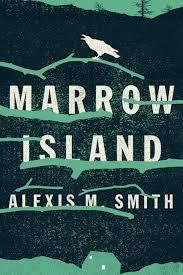Take a photo of a barcode or cover
2.5 I bought this at Powell's Books on vacation, because it took place in the Northwest, and was writtn by a local author. The author is talented, but I wouldn't classify it as thriller, more like a novel of environmental fiction. It is obvious that the author did a lot of research. Still, her main character was too introspective for me to really connect with.
I thought I was going to love this. The writing is gorgeous and the author describes the ecology of the San Juan islands in a way that makes you feel like you are there. But the book started feeling uneven as it went on. The mystery and catastrophic events that are foreshadowed in the prologue did not end up being as dramatic as expected. I kept feeling like I had missed something. I just didn't have a firm grasp on Lucie's character or really understand her relationship with Carey. By the end, I was ready for it to be over.
2.5, probably. I expected...more, somehow, from this. I never really connected with Lucie, or any of the other characters. The first half of the book kind of dragged for me, especially the parts taking place in 2016. I thought about not finishing, actually, but it is a pretty short, quick read, so I decided to power through. The second half, or perhaps even last third picked up, but it was too little to late to save my overall impression of the book much. Maybe I read this at the wrong time: I just finished the Goldfinch, and was so immersed in that world and those characters that it’s possible I am now being a little hard on this book. I don’t know.
Marrow Island took me to a part of the world I've never been to before. Sadly, due to a disaster, the islands are not in a condition to be visited but that is where the story lies. Lucy, a bit broken by Life, returns home to take a time out. Instead of peace and quiet, she finds herself reuniting with an old friend who is also rebuilding her life-but as a colonist on a formerly toxic island. Everytime I thought I knew where the story was going, it went somewhere else. Most surprising was how I found myself interested in the science behind the story. I had no idea about the mushrooms.
It loses a star for running out of steam in the plot. The big climax was kind of ....meh. Overall it was a good read.
Side notes: I listened to most of this on audio and loved the narrator's voice. Also, apparently I read Glaciers by this author awhile ago and LOVED it.
It loses a star for running out of steam in the plot. The big climax was kind of ....meh. Overall it was a good read.
Side notes: I listened to most of this on audio and loved the narrator's voice. Also, apparently I read Glaciers by this author awhile ago and LOVED it.
adventurous
challenging
dark
emotional
mysterious
reflective
sad
tense
slow-paced
Plot or Character Driven:
Character
Strong character development:
Yes
Loveable characters:
Complicated
Diverse cast of characters:
Complicated
Flaws of characters a main focus:
Yes
3.4-- I'm a bit conflicted about this one. I thought the story moved at a great pace, with just enough surprises to keep you in suspense. I enjoyed it, but can't say I loved it and I can't put my finger on exactly why. At times, I felt like the writing flowed in a trippy way, but that could be symbolic of the mushroom trips that occur from time to time in the novel.
2.5 stars. I was really intrigued by this one initially, but it left me feeling somewhere between disappointed and totally indifferent at the end of the story. The story takes place in post-natural disaster Washington and Oregon. The main character Lucie lost her father in a refinery fire/explosion in the wake of a devastating earthquake. After two decades away, she returns to the island where her father died to reconnect with her former best friend Katie who is now part of an ecological community that is trying to restore and repair the island, led by a former nun.
The strength of the story is most definitely in the setting. Smith depicts the Pacific Northwest beautifully (which happens to be where I now live, so at the beginning of the book I was LOVING how familiar and evocative it felt). She touched on many issues and concerns that would be familiar to many PNW residents—not only an impending Cascadia earthquake but also issues of housing crises, gentrification, droughts, increasingly hotter summer temperatures, etc. (however, most of these are just discussed in passing and don't connect to the main plot). I also found it interesting how Smith discussed ecological issues and incorporated biology into her narrative.
However, the characters *really* fell flat for me, and I was not compelled by the plot line at all. Aside from the aforementioned setting and ecological themes, I found the writing to be overly straight-forward and lackluster. I felt like it had the potential to make a bigger statement about the environment and how we choose to live, but it never really went there.
The strength of the story is most definitely in the setting. Smith depicts the Pacific Northwest beautifully (which happens to be where I now live, so at the beginning of the book I was LOVING how familiar and evocative it felt). She touched on many issues and concerns that would be familiar to many PNW residents—not only an impending Cascadia earthquake but also issues of housing crises, gentrification, droughts, increasingly hotter summer temperatures, etc. (however, most of these are just discussed in passing and don't connect to the main plot). I also found it interesting how Smith discussed ecological issues and incorporated biology into her narrative.
However, the characters *really* fell flat for me, and I was not compelled by the plot line at all. Aside from the aforementioned setting and ecological themes, I found the writing to be overly straight-forward and lackluster. I felt like it had the potential to make a bigger statement about the environment and how we choose to live, but it never really went there.
This was very different from my usual mystery reads, primarily because it was what I can only think to describe as an "ecological thriller." Smith clearly knows her way around the wilderness of the Pacific Northwest, and I found myself having to look up images of a lot of the vegetation she was describing. I found myself more interested in her descriptions of plants, campsites, and islands than in the actual mystery at the heart of the book -- and I'm not big on nature writing, so I'm not sure what that means.
An odd book with some beautifully written passages. Still not quite sure what I think.
An odd book with some beautifully written passages. Still not quite sure what I think.





